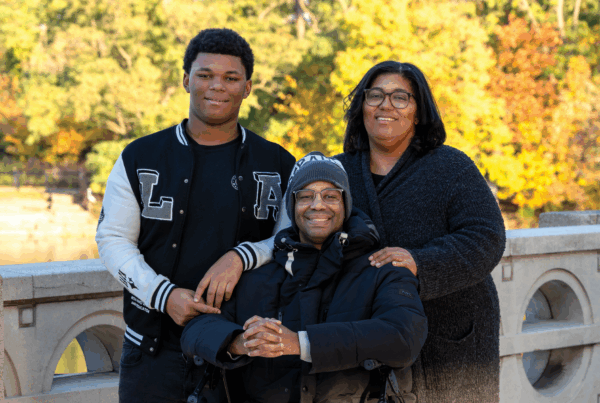Four job-access bills that create employment opportunities for Illinoisans with old criminal records have been signed into law, two taking effect immediately.
The bills offer new work opportunities in schools, park districts, and in health care. All were advocated by the Reentry Project at the Chicago Coalition for the Homeless (CCH) and the RROCI coalition on which we partner, and enacted with bi-partisan legislative support.
“Legislators Kelly Cassidy, Camille Lilly, Jacqueline Collins, Iris Martinez, Patricia Van Pelt, and Don Harmon recognize that Illinois must remove employment barriers for people with records,” said CCH Executive Director Doug Schenkelberg.
“Thanks to their leadership and the work of the RROCI coalition — Community Renewal Society, Cabrini Green Legal Aid, Heartland Alliance, and the Reentry Project — we passed four important pieces of legislation that create real opportunity.”
The Reentry Project is part of the Restoring Rights and Opportunities Coalition of Illinois (RROCI), organized in 2015 with the Cabrini Green Legal Aid Clinic, Community Renewal Society, and Heartland Alliance. RROCI advocates for policies that would remove barriers for people in reentry, including lifetime employment bans.
More than 110 CCH reentry leaders visited Springfield last spring to advocate for these measures.
Senate Bill 42 will increase opportunities through health care licensing. It was signed by Gov. Bruce Rauner on August 25.
Effective Jan. 1, 2017, SB42 gives the Department of Financial and Professional Regulations the discretion to grant licenses to people with records, using a robust 15-factor analysis. Sen. Iris Martinez (D-Chicago) and Rep. Camille Lilly (D-Chicago) were chief sponsors.
SB42 passed the Illinois Senate 48-3-1 on May 31. It passed the House on May 26 by a vote of 71-40.
Senate Bill 3005 ends lifetime barriers to jobs in park districts. It took effect on August 22, upon being signed by Rauner.
SB3005 was sponsored by Sen. Jacqueline Collins (D-Chicago) and Rep. Kelly Cassidy (D-Chicago). It passed the Senate, 34-14, on April 21, and the House by a 62-54 vote on May 30.
House Bill 4515 will improve how an ex-offender’s waiver is reported to employers via the state’s Health Care Worker Registry, making it clear that the waiver makes someone eligible to work. It takes effect on Jan. 1, 2017.
Rep. Lilly (D-Chicago) sponsored HB4515 after 18 months of negotiations with the health care industry. Sen. Don Harmon (D-Oak Park) sponsored it in the Senate.
Also signed by the governor on August 22, HB4515 passed the Senate by a 43-8 vote on May 19. While it had passed the House, 62-44 on April 22, HB4515 was returned to the House for a concurrence vote, because the Senate amended the bill’s effective date. The bill passed the House, 71-38, on June 29.
House Bill 4360 was the first of the four bills sent to the governor’s desk and the first signed. It allows people with drug offenses to work or volunteer in public schools, following a seven-year wait after completing sentencing.
It became effective July 29, upon being signed by Rauner. Sponsored by State Rep. Cassidy, HB4360 includes amendatory language suggested by the governor’s office when he vetoed the original bill in 2015. HB4360 passed on the House on a 64-47-1 vote on April 13. With Sen. Patricia Van Pelt (D-Chicago) the chief Senate sponsor, the bill passed by a 31-17-3 vote on May 25.

(From left) Sam Tuttle of Heartland Alliance, Lindsey Hammond of Community Renewal Society, State Rep. Camille Lilly, and CCH’s Jonathan Holmes (Photo by CRS)
CCH staff and leaders working on reentry legislation include Senior Community Organizer Rachel Ramirez, Policy Specialist Jonathan Holmes, and Reentry Project co-chairs Charles Austin and Gloria Davis.
– By Jonathan Holmes, Policy Specialist






